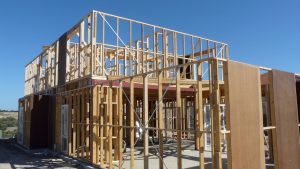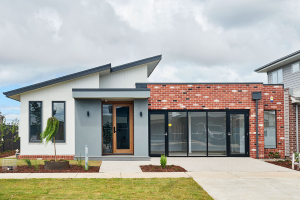What is the Best Time to Build a House?
Building a house is a monumental endeavor, and selecting the right time to embark on this journey can significantly impact the outcome of your project. While there isn’t a one-size-fits-all answer to the question of when is the best time to build a house, there are several key factors to consider that can help you make an informed decision.
1. Seasonal Considerations
Spring: Spring is often regarded as one of the best times to start a construction project. The weather is usually mild, which can facilitate smooth progress and minimize weather-related delays. However, it’s important to be mindful of the potential for heavy rainfall, which might impact excavation and foundation work.

Summer: Summer offers longer daylight hours and more predictable weather, making it an ideal time for construction. However, high temperatures can pose challenges for workers, and certain regions may experience excessive heat.
Fall: Fall is another favorable season for building, with cooler temperatures and reduced humidity. This can create optimal conditions for various construction tasks, such as roofing and exterior finishing. Keep in mind that the availability of skilled labor might be higher during this period as well.
Winter: While winter is often considered a less popular time for construction, it can have its advantages. Some contractors offer reduced rates during the off-season, and scheduling may be more flexible. However, weather-related setbacks and the potential for materials to freeze must be taken into account.
2. Budget and Resource Planning
Construction Costs: The timing of your house build can impact construction costs. During peak building seasons, demand for materials and labor tends to be higher, potentially leading to increased expenses. Starting your project during a less busy season might help you secure better prices from suppliers and contractors.
Permit Processing: Consider the time it takes to obtain necessary permits from local authorities. Depending on your location, permit processing times can vary. Planning your construction start date to align with the completion of permitting can help you avoid unnecessary delays.
3. Availability of Contractors and Subcontractors
Peak Seasons: Contractors and subcontractors may be busier during certain times of the year, making it more challenging to secure their services. Booking these professionals well in advance or choosing a less hectic construction season can improve your chances of assembling the right team for your project.
4. Weather-Dependent Construction Phases

Foundation Work: Excavation and foundation work are critical phases that can be sensitive to weather conditions. Starting these phases when the ground is not overly wet or frozen is essential to ensure a solid foundation for your house.
Roofing: Roofing projects are best tackled during dry periods to prevent water damage and ensure proper adhesion of materials. https://citibuildconstruction.com.au/new-homes-bondi/
5. Personal Considerations
Life Events: Consider your personal schedule and any upcoming life events. Starting a construction project during a time when you have fewer commitments and distractions can help you stay more engaged and involved in the decision-making process.
Resale Value: If you’re considering the possibility of selling your house in the future, think about the timing from a real estate perspective. Houses completed during popular buying seasons may attract more potential buyers.
In Conclusion
The best time to build a house depends on a variety of factors, including weather, budget, contractor availability, and personal considerations. While there’s no universally perfect time, careful planning and consideration of these elements can greatly enhance the success and efficiency of your home construction project. Whether you choose the warmth of summer, the crispness of fall, or the cost savings of winter, the key is to align your timeline with the optimal conditions for a smooth and successful build.
Remember, the decision ultimately rests on your unique circumstances and priorities. By carefully evaluating these factors, you can confidently choose the best time to turn your dream house into a reality.
